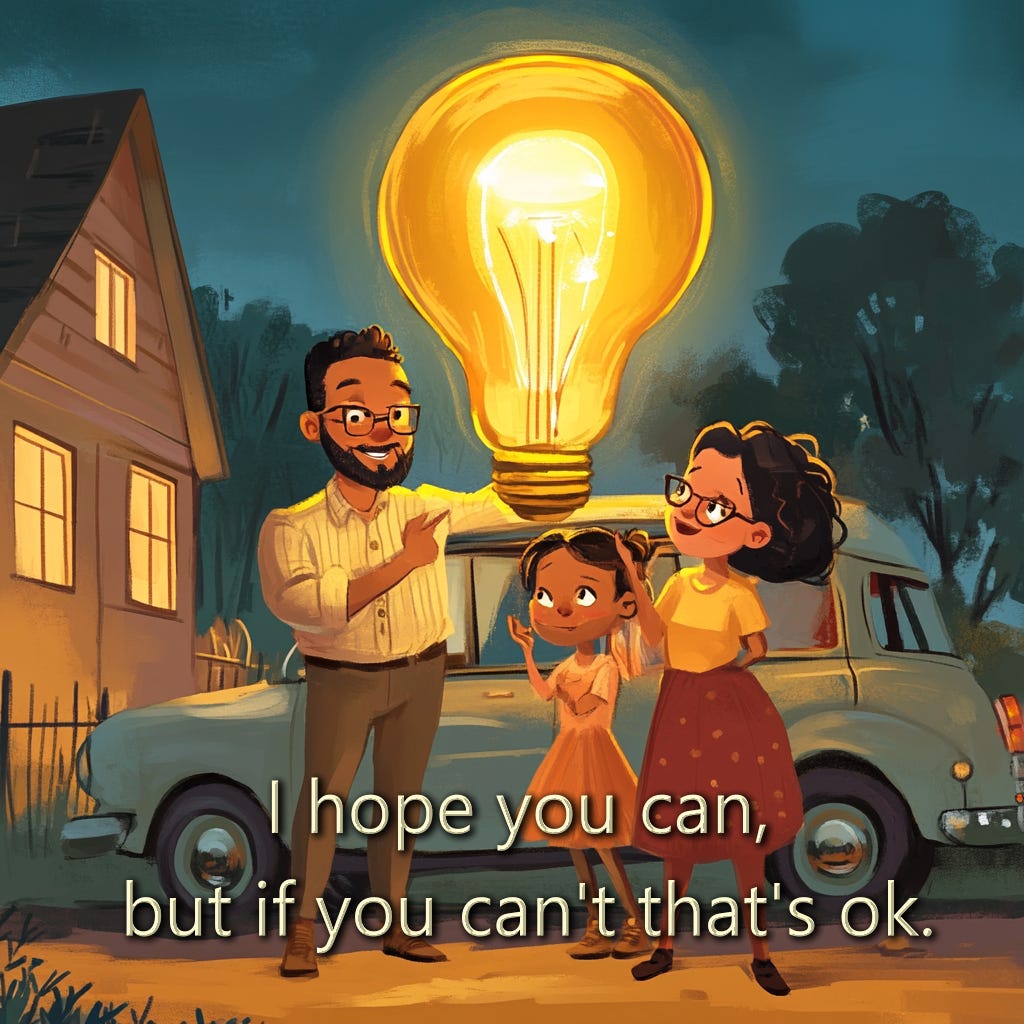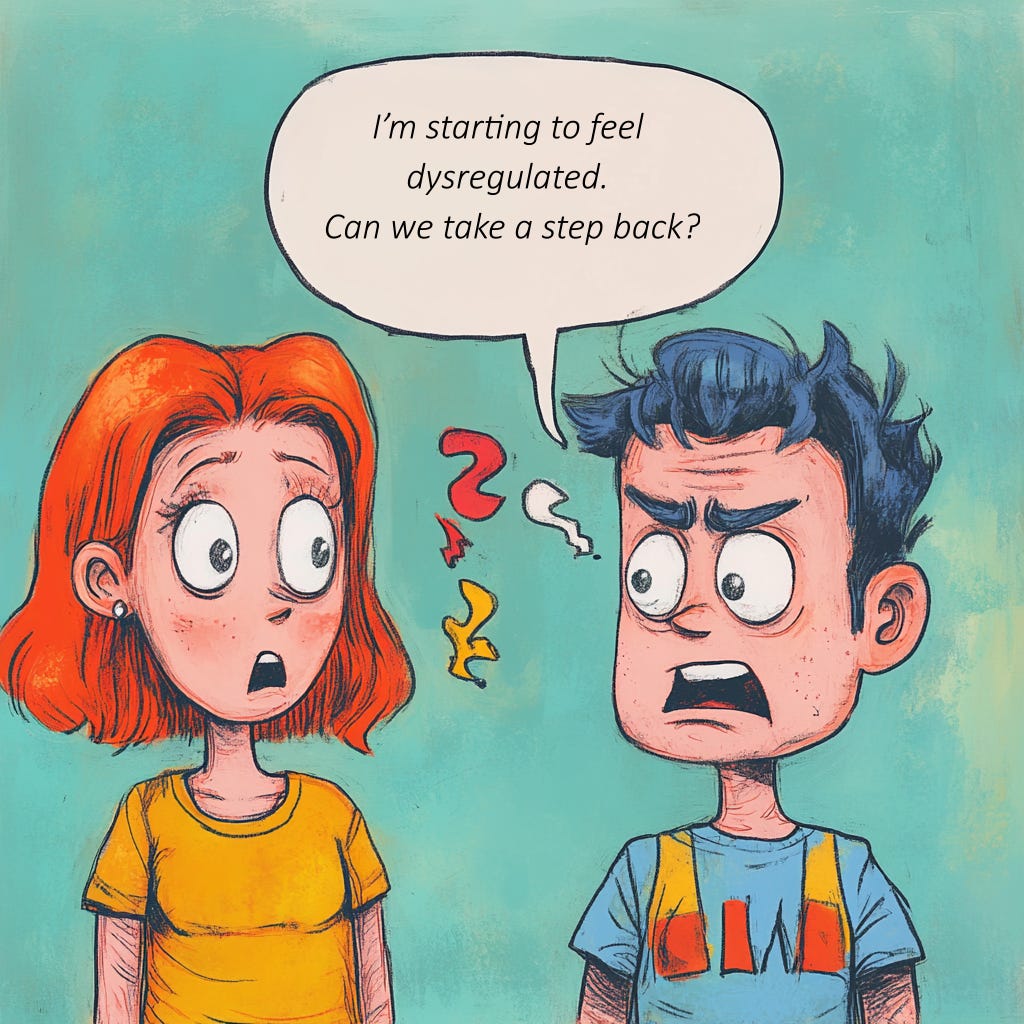Lightbulb Moments: How I Discovered I’m Neurospicy
Discovering clarity, connection, and compassion in a neurospicy journey.
Lightbulb Moments: How I Discovered I’m Neurospicy
For much of my life, I felt like I was navigating the world just a bit differently than everyone else. 🌍 Things that seemed effortless for others felt like climbing a mountain 🏔️ for me, and situations that others breezed through left me overwhelmed and exhausted. 😩 I chalked it up to being a "weirdo" 🤪 or just not fitting in, but deep down, I always knew there was more to the story. 🕵️ The lightbulb moment 💡 came when I sat in the doctor’s office, discussing my son’s struggles.
The doctor said, “Your son is probably on the autism spectrum.” 🧩 Then he paused, looked directly at me, and added, “Dad, you’re probably also on the spectrum.” In that instant, it felt like a mirror shattered. 🪞 Years of feeling different, misunderstood, and disconnected came rushing back, but for the first time, it all made sense. ✅ The Swiss cheese of my life lined up 🧀, and I realized I wasn’t just some oddball—I was neurospicy. 🌶️ I saw my life through a new lens, and the clarity was overwhelming, emotional, and profoundly validating. 🥹
Reframing the Past
Once that realization hit, it was like opening a floodgate. 🌊 I started reflecting on my childhood and all the moments that used to make me cringe. 😬 The times I was teased for sticking my hand out the car window 🚗, feeling the rush of air and imagining it as a plane wing. ✈️ What once seemed like a quirky habit was suddenly reframed: it wasn’t just random; it was a sensory experience that brought me comfort and joy. 😊 The times I talked back to my mom or resisted her demands weren’t about being defiant—they were about demand avoidance, an intrinsic need to maintain my autonomy. 🙅♂️
One moment stood out in particular. As a kid, I’d lied to my mom about something and convinced her I hadn’t done it. 🤥 My mom, in frustration, turned to my younger sister and punished her instead. 😔 The guilt crushed me, and I confessed. 😢 For years, I carried shame about that moment, thinking I was a terrible person. Looking back now, I see it differently. I wasn’t just being stubborn or manipulative; I was masking 🎭 and trying to avoid demands in a way that felt instinctive. Understanding this has brought me so much compassion for my younger self. 💖
A Family’s Journey
The lightbulb moment didn’t just reframe my life; it reshaped my family dynamics. 👨👩👦 My wife is also neurospicy, and together, we’ve worked hard to create a home where understanding and communication are paramount. 🏡 A pivotal moment came a few years ago when we were getting ready for one of our kids’ school assemblies. 🏫 These events are so challenging for me. 😟 The looming demand builds dread until it feels like a mountain I’m being forced to climb. 🏔️ In the past, this would have led to an argument, dysregulation, and a miserable evening for everyone.
But this time was different. 💡 My wife, who’d been learning about PDA (pathological demand avoidance), approached me with patience and understanding. 💕 She didn’t demand that I go. Instead, she said, “I hope you can make it, but if you can’t, that’s okay.” Then she gave me a hug 🤗 and left me space to process. That made all the difference. ✨ Without the pressure, I was able to take a moment, gather myself, and eventually make it to the event. When I got there, I sat in the car 🚘 for a while, composing myself. My wife went in first, worried I might not follow, but I did. And it turned out to be a wonderful evening. 🌟
That night was a turning point. 🔄 It was the first time we handled a situation like that as a team, without conflict or dysregulation. 🤝 Since then, moments like these have become more common. We still have our struggles, but the time it takes to recover from dysregulation has shortened dramatically. 🕒 That night showed us what was possible when we worked together with empathy and understanding. 💛
Lessons in Dysregulation
Dysregulation is a reality for many neurospicy individuals, but it doesn’t have to dominate your life. 🌀 One of the biggest lessons we’ve learned as a family is the importance of recognizing the early signs of dysregulation—in ourselves and each other. 🛑 It starts with being open and honest: “I’m starting to feel dysregulated. Can we take a step back?” These simple words can diffuse so much tension. 💬
It’s also about checking for miscommunication. 🔍 Sometimes, what you mean to say and what someone else hears are completely different. If someone reacts in a way that doesn’t make sense, it’s worth pausing to ask, “What did you hear me say? I feel like there’s a disconnect.” This small act of curiosity and care can prevent a spiral into chaos. 🛡️
Building trust and calm in the face of dysregulation isn’t easy. 🏗️ It takes time, patience, and a willingness to change how you communicate. 🕰️ But the results are worth it. 🏆 The more you practice, the more your body and mind develop the muscle memory to navigate these situations with grace. 🌈
Seeking Connection
Another major shift since my lightbulb moment has been my approach to connection. 🌐 I used to mask constantly, trying to fit in with neurodifficult norms. But masking is exhausting. 😓 Now, I prioritize authenticity 🌟 and seek out spaces where I can share my story without fear of judgment. 🗣️ These connections are invaluable. 💎 They allow me to process my experiences in real-time, like rubber-duck debugging for the soul. 🦆 The simple act of telling my story helps me understand myself better. 🔄
This openness has also made me more empathetic. 💞 I’m more attuned to stress in others and more mindful of how my words and actions might impact them. 🧘 Respecting someone’s boundaries, accommodating their needs, and showing kindness—these aren’t signs of weakness. They’re signs of strength. 💪
Moving Forward
If I could go back in time, I’d tell my younger self what I know now. ⏳ I’d tell him to be patient, that it’s going to get better. 🌟 I’d reassure him that he’s not alone and that there’s a whole community of people just like him who understand. 🤝 But since I can’t go back, I’ll share that advice here instead: It gets better. It’s not always going to be this hard. Stay calm. This too shall pass. 🌅
For anyone on this journey, whether you’re neurospicy yourself 🌶️ or supporting someone who is, know that progress is possible. ✅ It takes work, but the rewards—connection, understanding, and a life lived authentically—are worth every step. 🚶♂️ And remember: You’re not alone. 💞
In Closing
🌐📢🎉 Have a neurospicy parenting question? Need advice? Have a story to share? Submit your thoughts to askmcphee@gmail.com or drop a comment below! Let’s navigate this journey together. Your stories, questions, and experiences are what make this journey meaningful, and I hope this can be a place where we all learn from each other.







